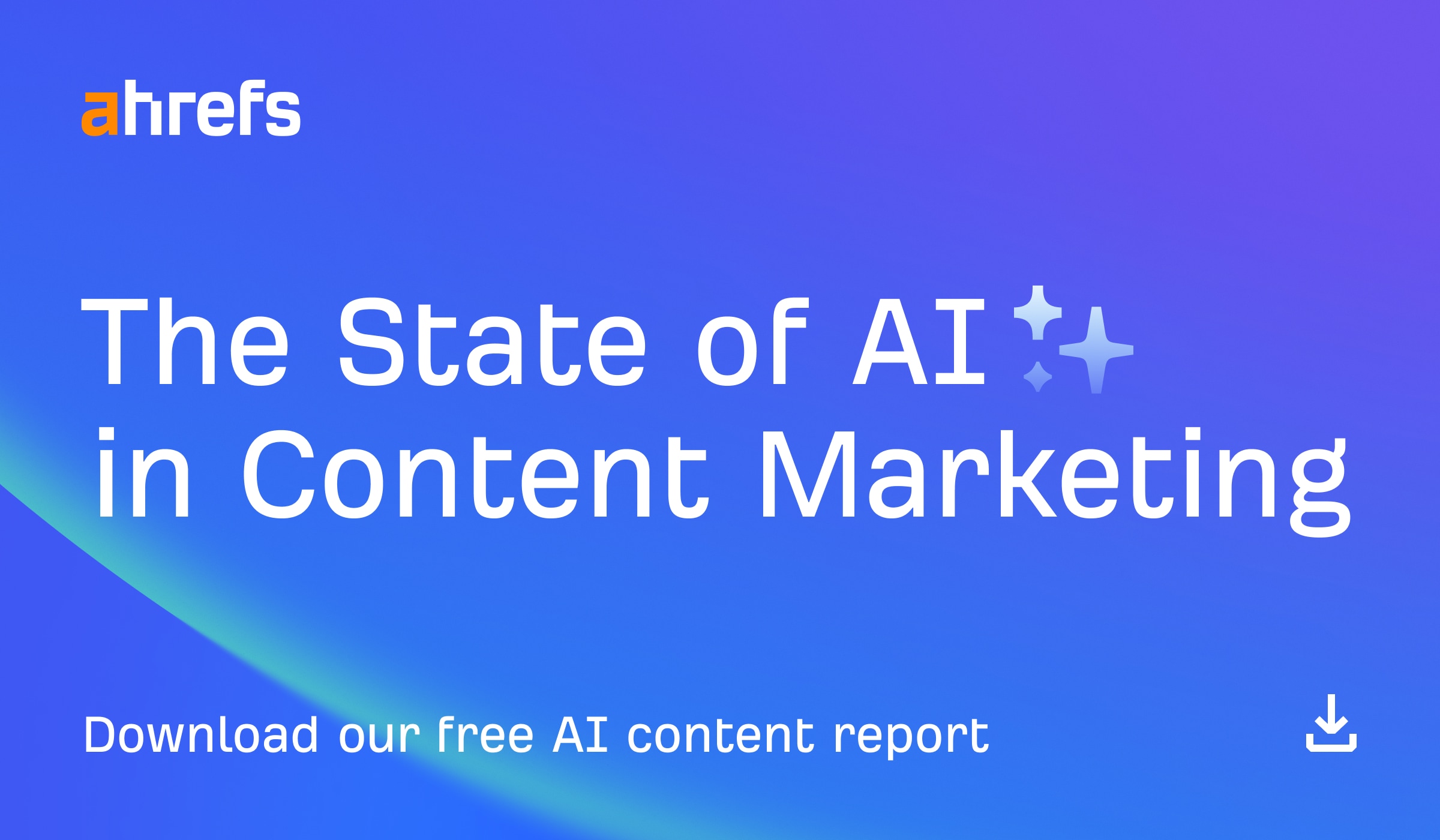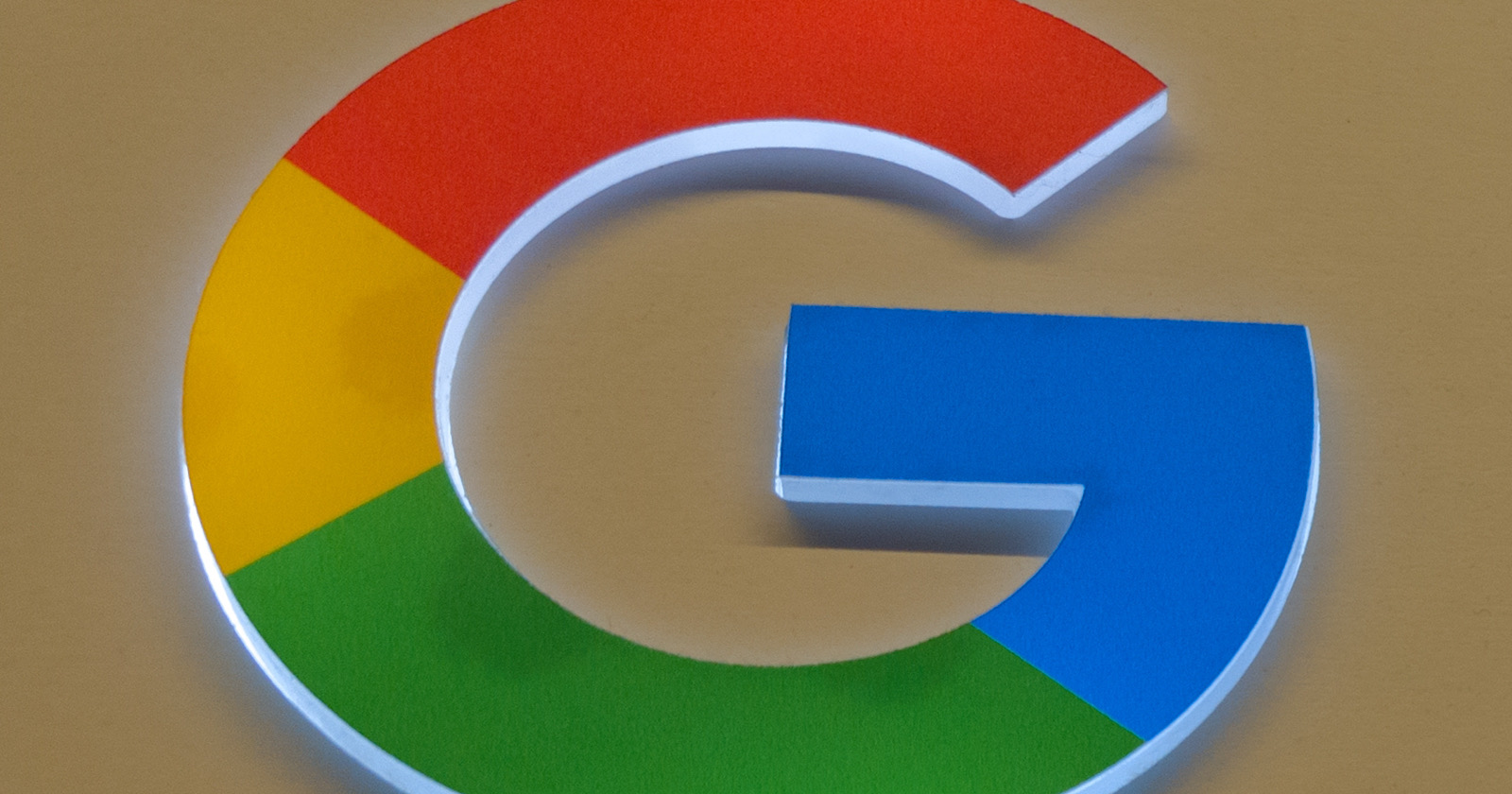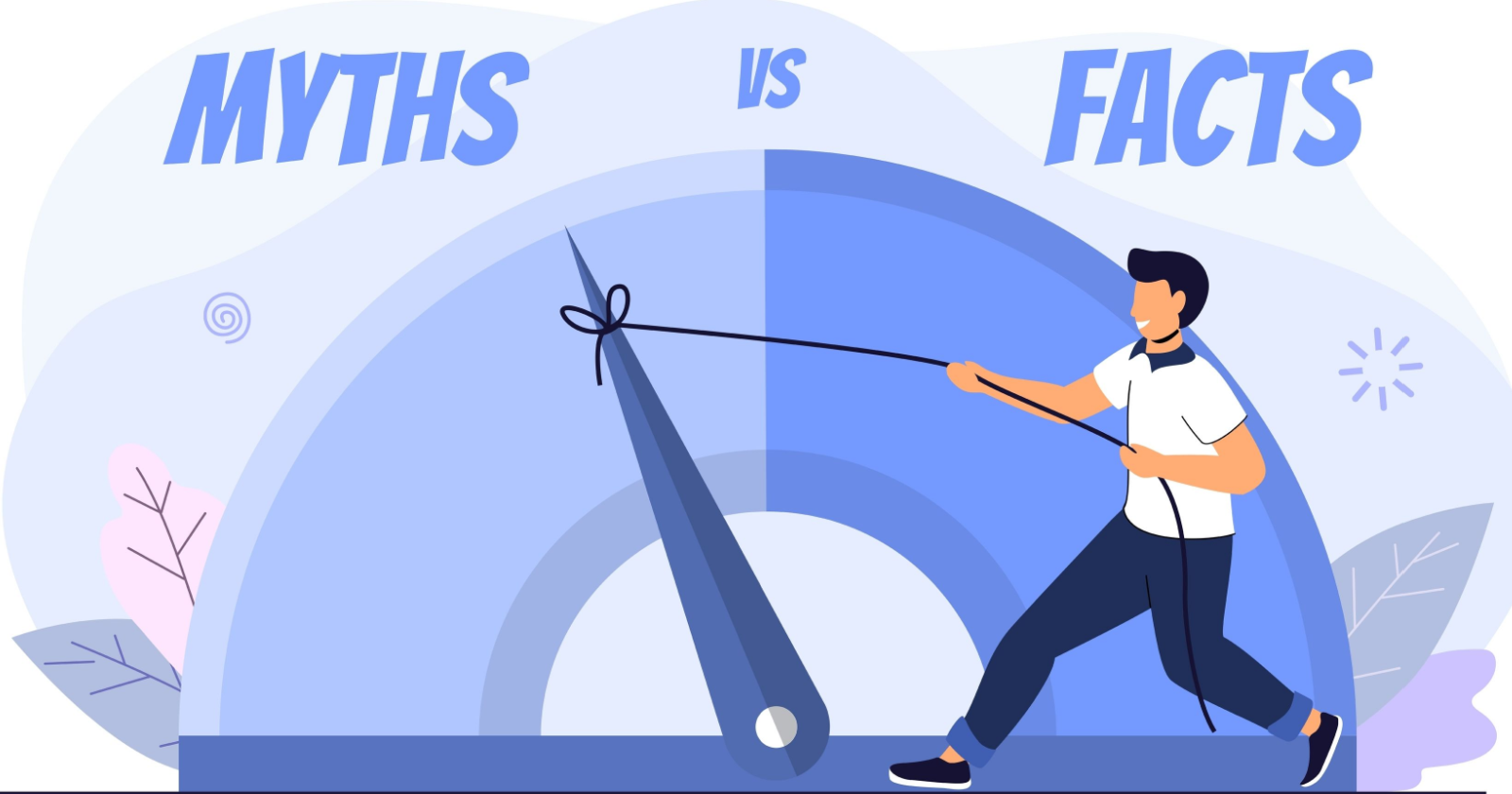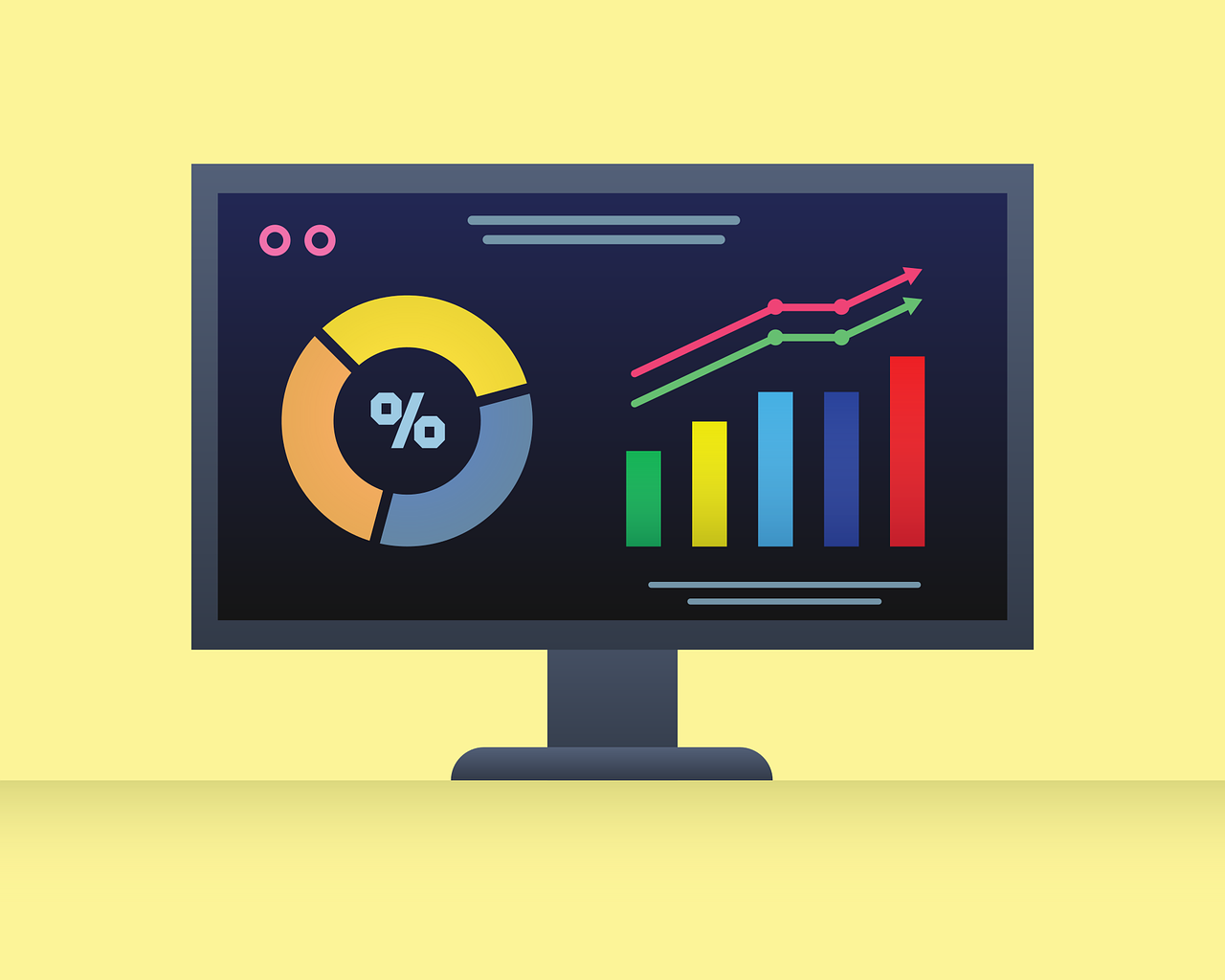Websites Using AI Content Grow 5% Faster [+ New Research Report]
In this article, we’re looking at the performance of AI content. Does it rank? Does it perform better or worse than human content? Is it riskier than human content? Websites using AI content grew 5% faster than those not...
![Websites Using AI Content Grow 5% Faster [+ New Research Report]](https://ahrefs.com/blog/wp-content/uploads/2025/06/websites-using-ai-content-grow-5-by-ryan-law-data-studies.jpg)
We surveyed 879 marketers to understand how generative AI is changing content marketing: the workflows, the costs, the results…and the risks. In this article, we’re looking at the performance of AI content. Does it rank? Does it perform better or worse than human content? Is it riskier than human content? Read the full research report Download and read the full PDF report here (no email required): The State of AI in Content Marketing. It includes extra research and analysis on AI content performance and costs, expert commentary from a dozen content and AI experts, and the full research methodology. From a subjective standpoint, our respondents seem equally happy with AI and non-AI content strategies. There was almost no difference in the self-reported efficacy of respondents’ content strategies. AI users reported an average score of 6.4 out of 10, while non-AI users reported an average of 6.3. Here’s how the responses were distributed. The most extreme ratings (0 and 10 out of 10) were both more prevalent among non-AI users, suggesting that human content strategies have the potential to be both very good, and very bad. The most common (modal) score for AI users was 7, slightly lower than the most common score for non-AI users, at 8: Similar results came from asking respondents to rate the effectiveness of their content marketing strategy in attracting organic search traffic. For non-AI users, the average score was 6.1/10, compared to a slightly higher average of 6.5 for AI users. Looking at the distribution of these responses, the modal score for AI users was 8, lower than the modal score of 10 for non-AI users: Most people believe that human-written content is better quality than AI content. A total of 65% of respondents reported that human-written content was better quality than AI content, with 29% reporting that it was “slightly better” and 36% reporting that it was “way better”. 14% of respondents reported that AI content was better quality (6% “slightly better”, 9% “way better”), while 21% reported that they were “roughly the same” quality: “I’ve tested the majority of “AI writing tools” out there on the market and they struggle to compare to human written content. This is the case especially when it comes to content that requires subject matter expertise. While AI writing may evolve over the years, it’s still in the stone age in comparison to what a top level writer can produce.” Connor Gillivan, Founder & Owner, TrioSEO “From my experience, the average AI output is usually more consistent, logical and well-structured than the average human-written article. But crucially, there is still a big gulf between the quality of the best human-written content and AI outputs. For now, skilled human writers still have a sizeable edge—especially when they use AI as an input into their writing process.” Ryan Law, Director of Content Marketing, Ahrefs Although most respondents believe human-written content is better quality, they were less confident in human-written content’s ability to outrank AI content. Most respondents reported that they either “rank roughly the same” (34%) or else they didn’t know (32%). 23% believed that human-written content ranks better, compared to 11% reporting that AI-written content ranks better. “It’s important to look at this data over a 12 month period. AI written content may start to rank initially and gain traction, but in my experience, Google eventually figures out that the site is abusing AI content writing and traffic for the site plummets.” “A reminder that here, we don’t have the test of time yet in many cases. Much of this content is fresh, at a time when Google is reshuffling its SERPs, algorithms and even pushes manual penalties aggressively after many years. So just a let’s-wait-before-we-make-up-our-minds-on-this moment is needed. “It could also be a result of transitioning to AI-generated from human-written content that wasn’t great to begin with. For example, your typical “SEO content” people (and Google) used to love and put out but after a point stopped working. In this scenario, maybe AI content doesn’t perform better, but the initial threshold was low to begin with. (And in this comparison, at least AI content has cost less and was produced faster.)” To add extra context to these figures, we used the Ahrefs API to look at the estimated organic traffic growth for each respondent’s domain between January 2024 and January 2025. In this simple analysis, websites that reported using AI content saw a median year-over-year growth rate of 29.08%, compared to a median of 24.21% for sites that didn’t use AI. The trend was positive for both segments, but AI content users (with their increased publishing frequency) seemed to experience stronger growth, to the tune of about 5%. Here’s a histogram of growth rates with the top 5% most extreme outlier values excluded for legibility: “This data gap is telling—is significantly more content production actually doing that much more for these companies? It may feel good, but it’s barely creating more performance. My hunch is that the sweet spot comes from people that are slightly more productive on a volume basis, but are still heavily emphasizing quality over volume.” “About ‘AI generated content’ performing the same as AI generated… I would add a ‘so far’ here. It’s clear that quality, uniqueness, and real experience is something that Google have openly shared that they’re looking to reward, and the AI generated content that don’t follow these standards will be definitely have a harder time ranking in the future. The key for leveraging AI for content, should be to use AI to accelerate content production workflows, rather than replacing humans; avoiding ‘AI content on autopilot’ without comprehensive human expert edition. In fact AI could be used to integrate data and insights in content generated at scale, helping to make the content more meaningful and useful for example, rather than just raw content production too. Creativity and the addition of an expert layer and validation will become key in the next few months.” AI Content Helper from Ahrefs We’ve built a content tool that uses AI in all the right ways: AI Content Helper. AI Content Helper marries human creativity with AI efficiency and Ahrefs’ competitor intelligence. It’s designed to help content and SEO teams scale their content production and improve their search rankings—without sacrificing human creativity and skill. AI Content Helper’s features include: We asked the 111 respondents not using AI to share the concerns that had stopped them from adopting it. The most popular reason for rejecting AI use was a concern about the accuracy of AI-generated content (60%), followed by plagiarism concerns (57%), and bias contained within AI content (36%). Only 8% of respondents were concerned that AI could not deliver a positive ROI: “These concerns help signpost the role we, as humans/content creators, should take nowadays. Expert and peer reviews ensure inaccuracies and biases are addressed. Editor reviews ensure plagiarism and brand consistency (and, to a degree, compliance with industry regulations). Expert insights and interviews can ensure originality. And so can writing based on data your content writer or team has gone out to collect.” Many companies are concerned that AI poses additional risks to their business. When we asked our respondents to share their fears, the biggest perceived risks of using AI content were sharing misinformation (62%), creating a worse user experience (56%), and worsening the company’s reputation (37%). 37% of respondents were also concerned with the risk of receiving a Google penalty: 37% of respondents reported being negatively impacted by a Google algorithm update in the past year: Many of Google’s recent updates have aimed to reduce the visibility of low-quality AI content. But if we segment these responses by AI use, we see a different picture: companies who did not use AI were 4% more likely to be negatively impacted by an algorithm update than those who did use AI (40% vs 36%): Judging by this data alone, Google is not trying to demote the type of AI content created by the companies in our survey (or else, they’re not very good at identifying it). “Arguably, many people don’t detect algorithmic impact correctly. In the last 12 months beyond confirmed updates the impact of AIOs, forums promotion, and SERP volatility have impacted massively domains’ performance.” Although AI content doesn’t seem to suffer particularly from Google updates, companies using AI are more likely to be hit with a manual penalty. 2.70% of non-AI users reported receiving a manual penalty from Google in the past year, compared to 3.78% of AI content users. “Google is apparently agnostic to AI use—but it is not agnostic to bad content or bad actors. And AI makes it very easy to make bad content.” Want to learn how marketers use AI for content creation, or how much companies spend on AI content? You can download and read our full PDF report here (no email required): The State of AI in Content Marketing.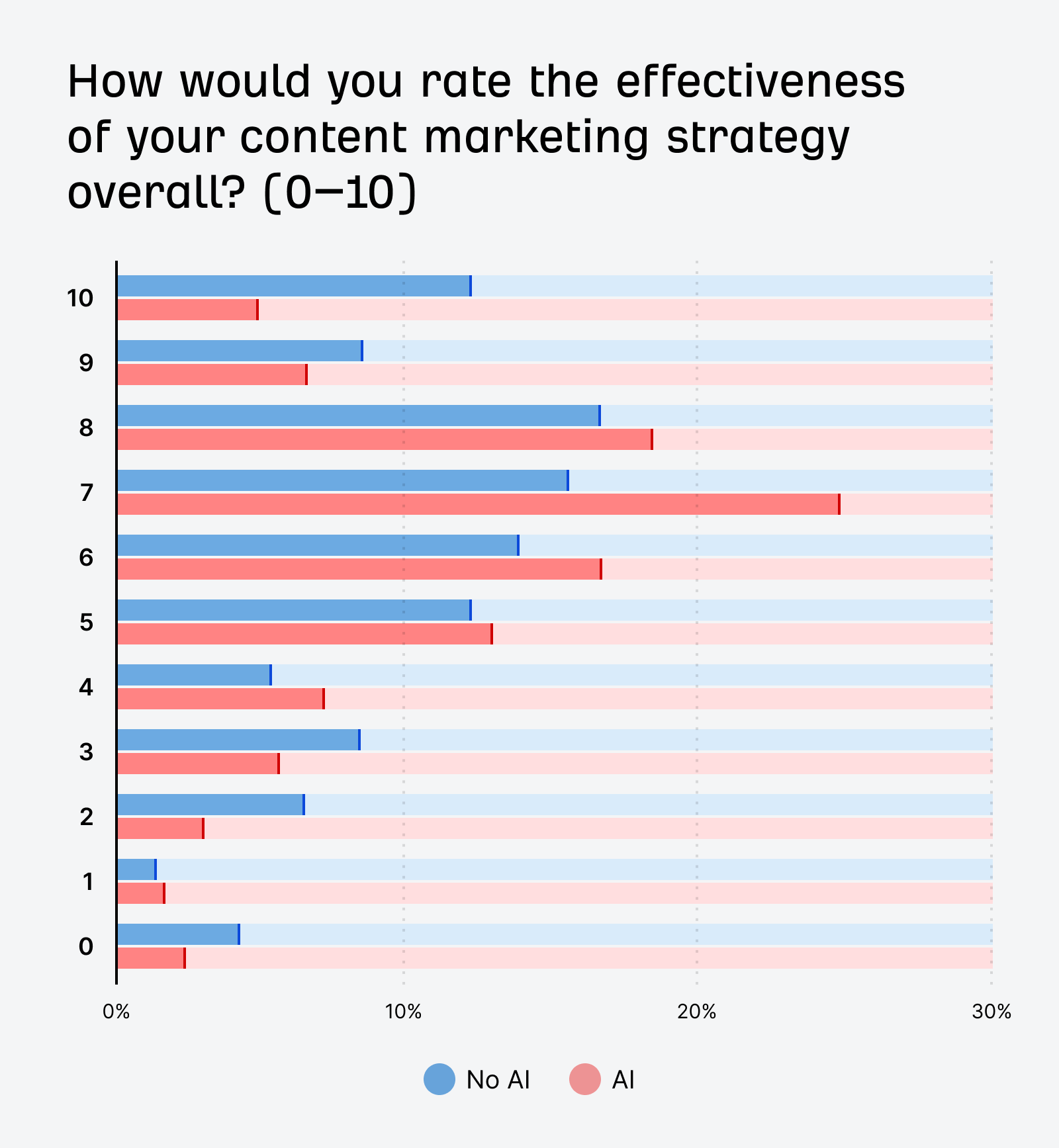
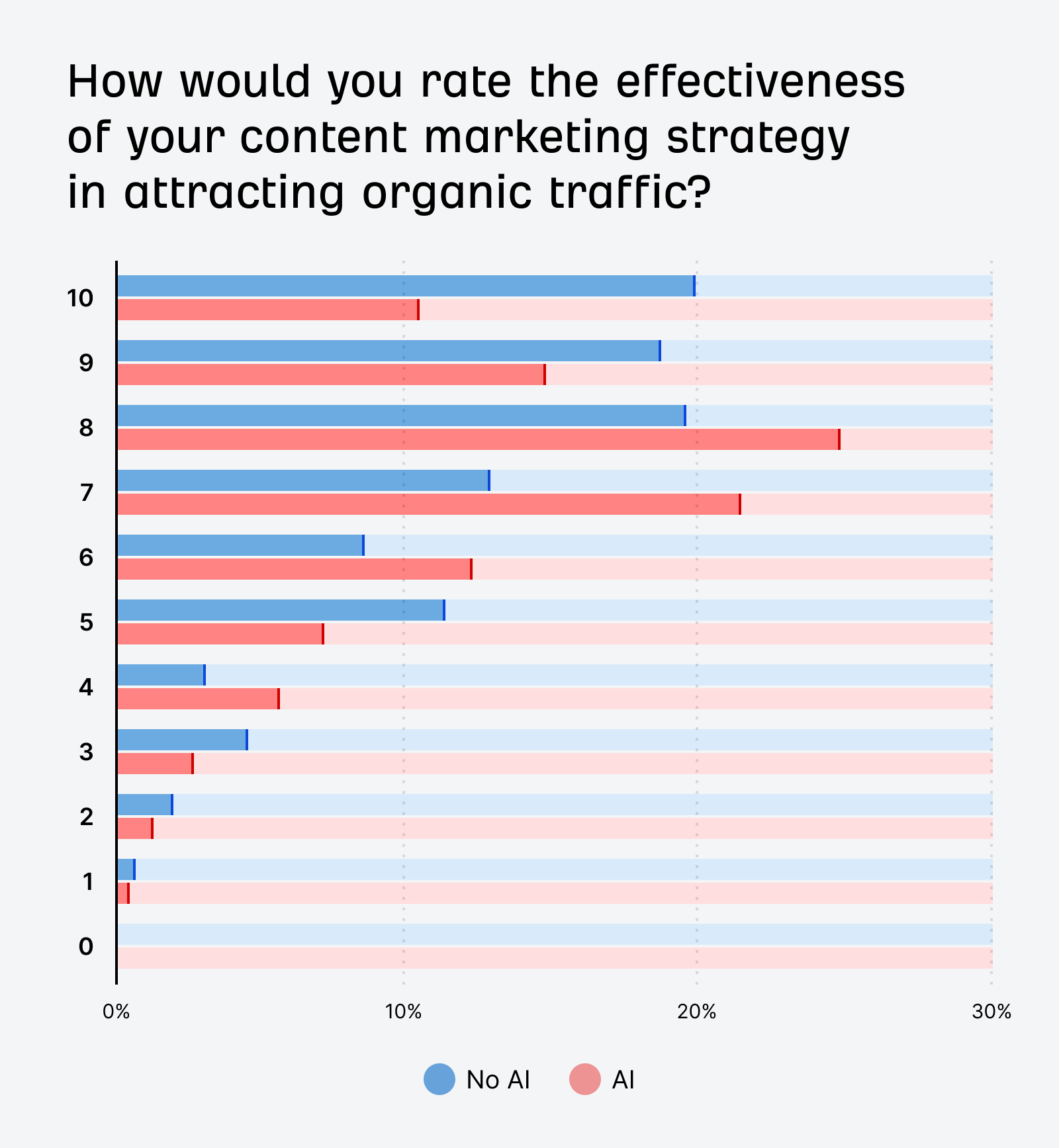
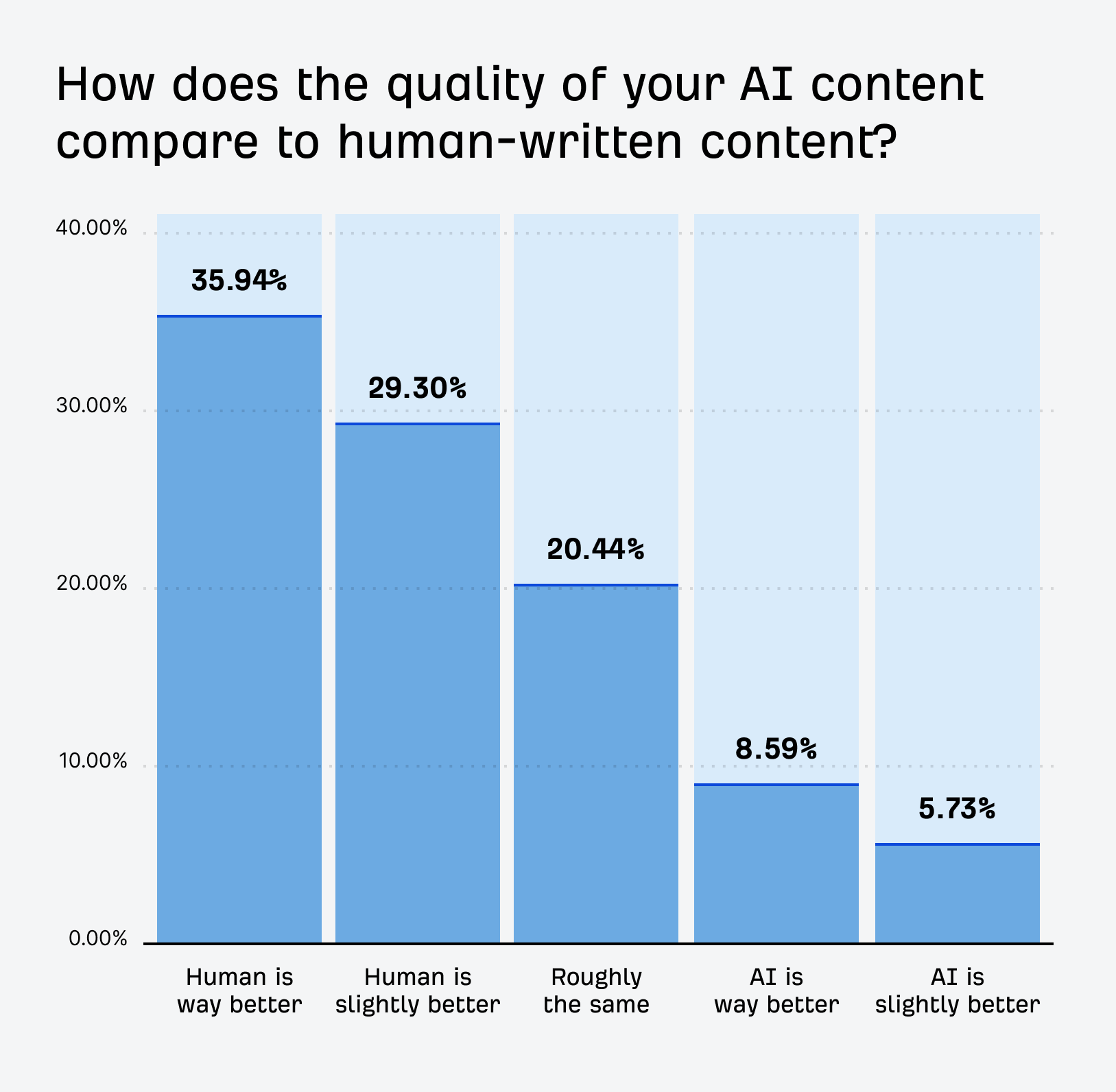
What the experts think
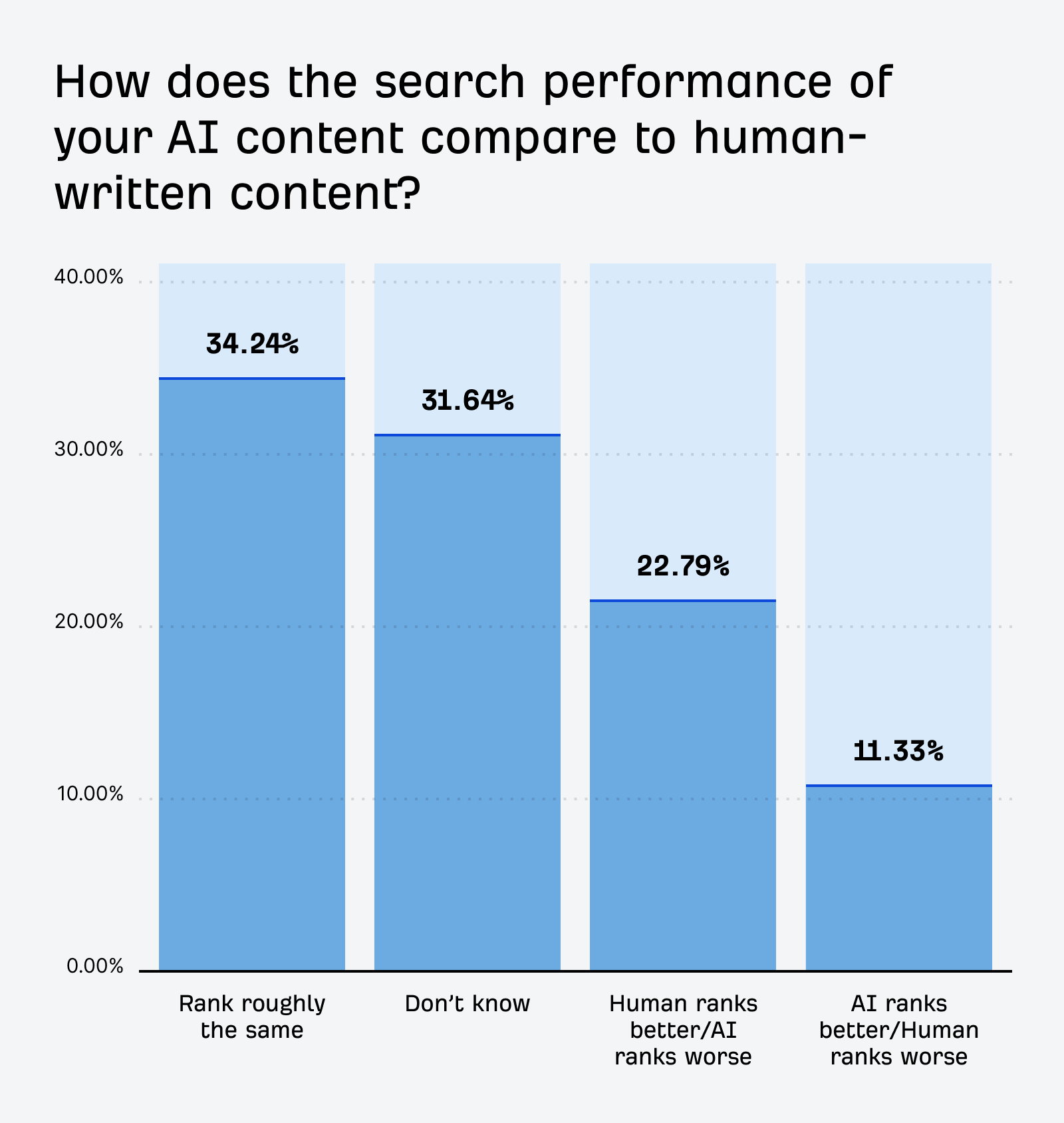
What the experts think



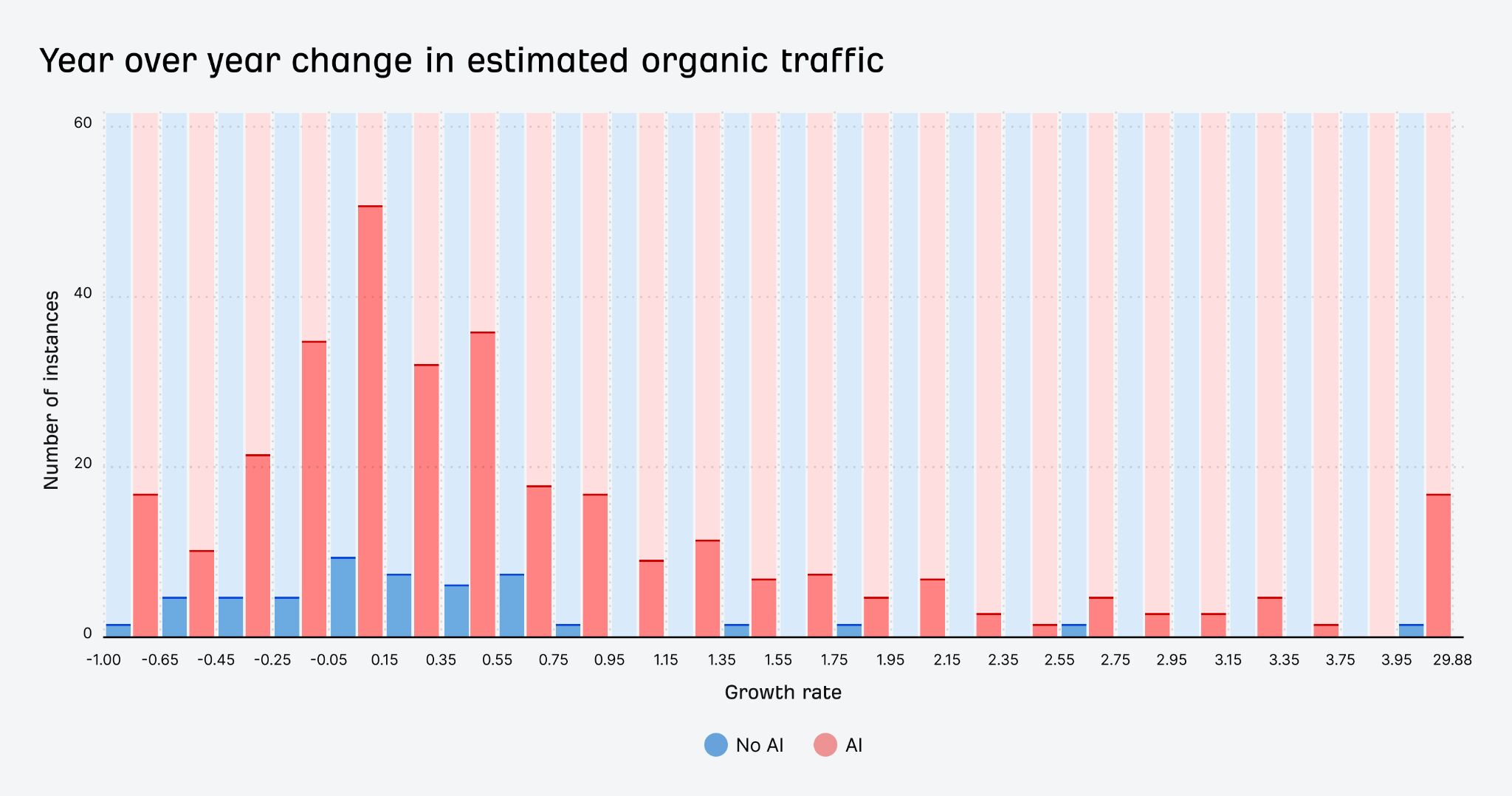
What the experts think


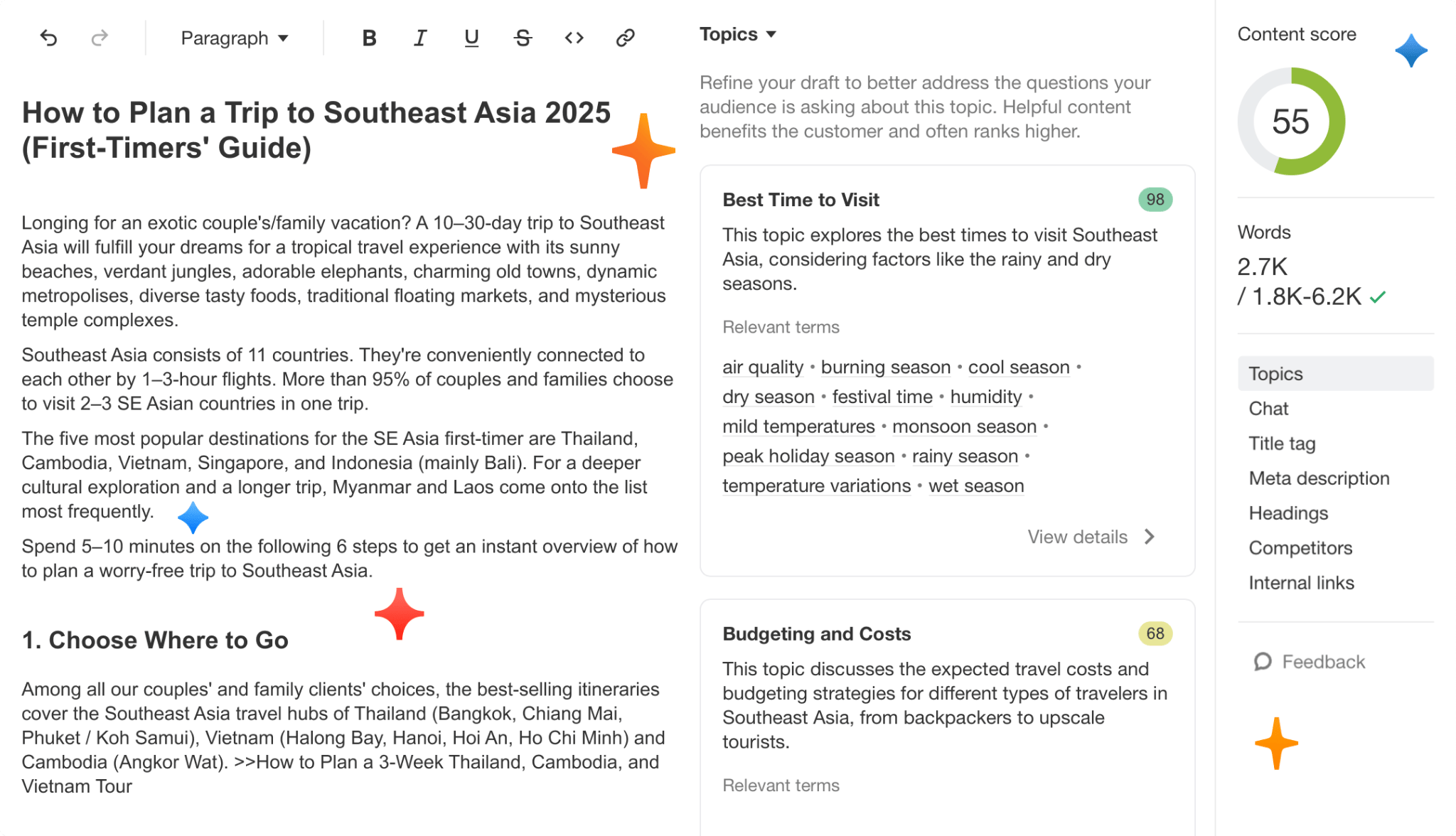
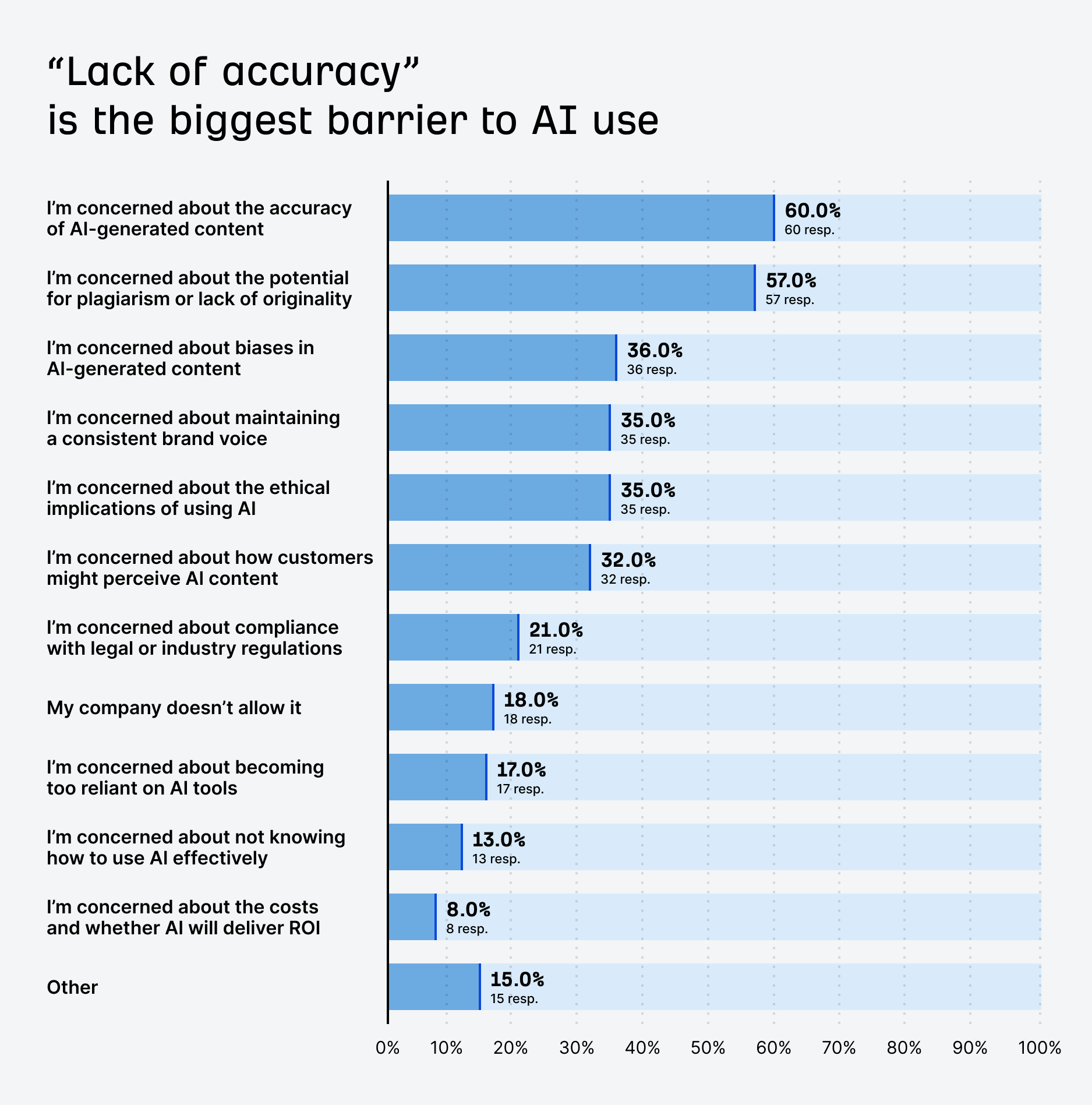
What the experts think

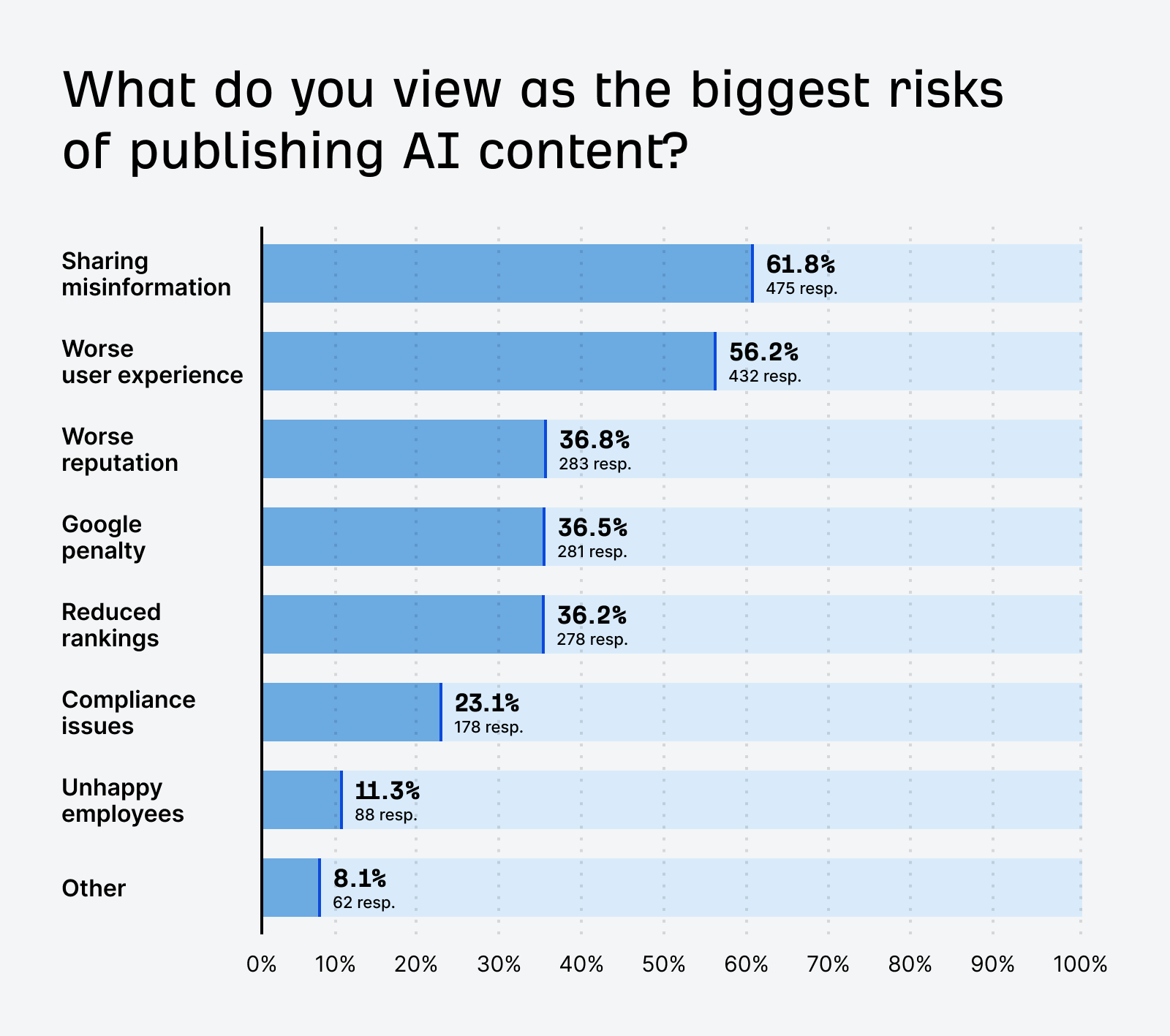
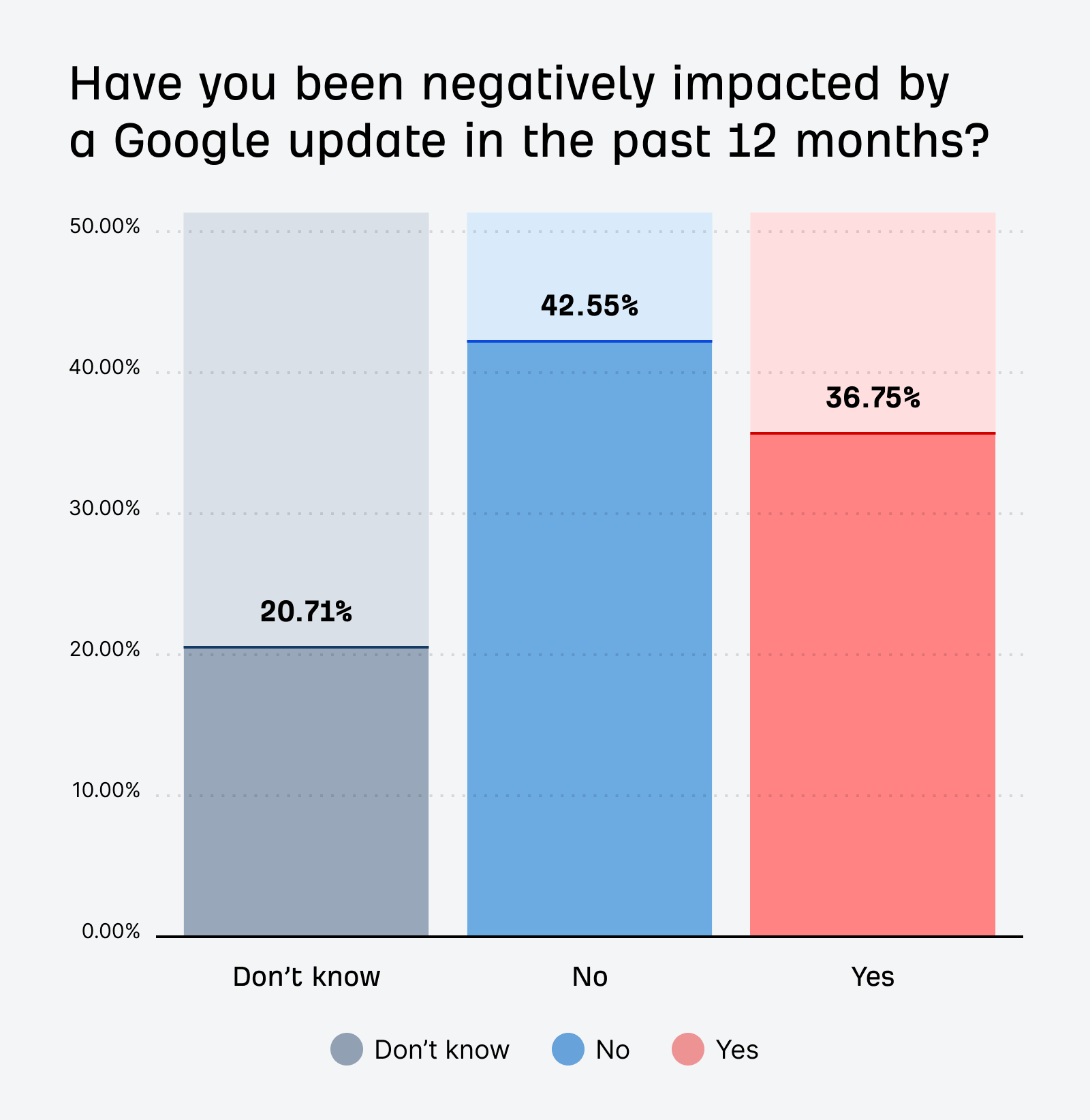
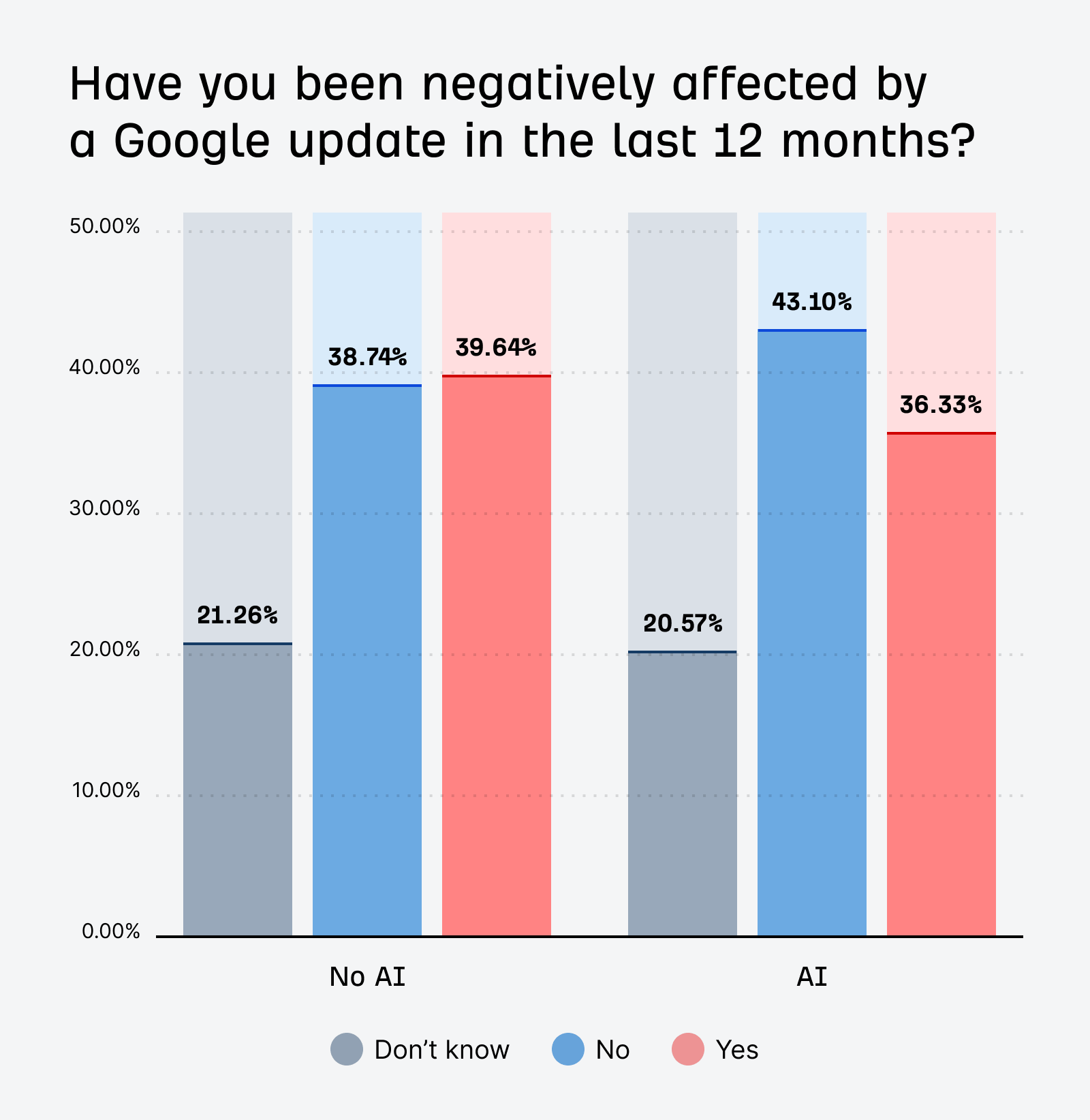
What the experts think
“Many people believe that there’s a huge risk from AI content, but the truth is that prior to the popularization of AI, many sites were using terribly writtten content produced by non-native English speaking freelancers. Google and other search engines aren’t necessarily opposed to AI as the means to create content, but they are pretty explicit in that all content whether created by humans or algorightms should be useful and helpful for the end user and not just be search engine content.”

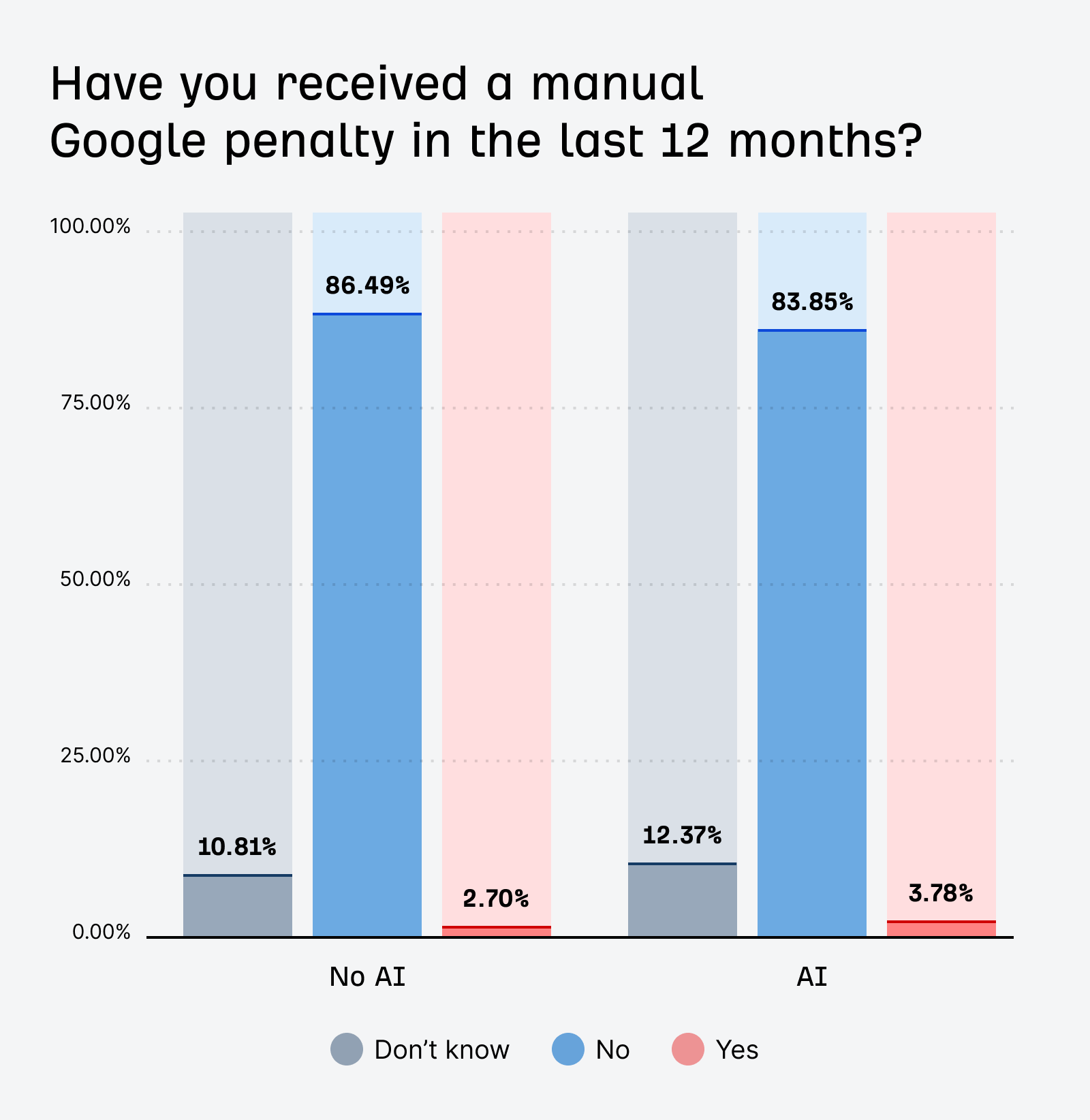
What the experts think


 AbJimroe
AbJimroe 